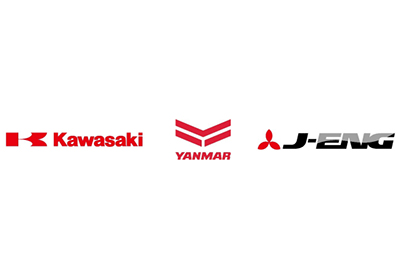Japanese Manufacturers cooperate on development of hydrogen fueled marine engines

May 11, 2021
On April 27th, 2021, Kawasaki Heavy Industries, Ltd., Yanmar Power Technology Co., Ltd., and Japan Engine Corporation formed a consortium of Japanese engine manufacturers to pursue joint development of hydrogen fueled marine engines for ocean-going and coastal vessels towards establishing a world-leading position in hydrogen engine technologies.
With the growing need to reduce greenhouse gas emissions, marine engines are expected to transition to various alternative fuels in the coming years. Among the many alternatives, hydrogen is attracting global interest for its application in a wide range of energy and mobility industrial sectors as a fuel that offers zero-emissions. The companies are looking to develop technologies in the hydrogen value chain towards global expansion of this important alternative fuel. By cooperating on common fundamental technologies such as basic experiments and analysis on hydrogen combustion, materials, and sealing techniques, as well as classification society requirements, each company aims to bring hydrogen-fueled engines to the market by 2025.
Kawasaki Heavy Industries will develop medium-speed 4-stroke engines, Yanmar Power Technology will focus on medium- and high-speed 4-stroke engines, and Japan Engine Corporation will embark on the development of low-speed 2-stroke engines. All three simultaneous developments will enhance the product lineup of propulsion and auxiliary (generator) engines for a wide range of vessels. In addition, a hydrogen fuel storage and supply system will be developed as part of the integrated hydrogen fuel system.
By developing advanced hydrogen marine engine technologies based on the distinctive engines and quickly launching in the market, the consortium will contribute to the Japanese shipbuilding industry. Furthermore, the companies aim to revitalize the Japanese maritime industry and realize a sustainable society by promoting the uptake of hydrogen fueled engine technology for marine vessels.



























